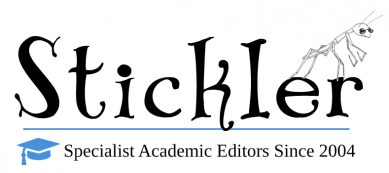Like many do-what-you-love industries, academia leaves little room for free time. Between preparing lectures, teaching, researching, grading, emailing, writing, networking, and presenting at conferences, many academics feel lucky if they get a single afternoon off each week.
Things are even worse for part-time or adjunct academics, who may feel pressured into taking on more work than they can manage, and for female academics and people of color, who are often saddled with extra mental and emotional labour, such as planning office parties or leading unpaid diversity workshops.
Some of this is due to a toxic “workaholic” culture, in which academics take pride in being overworked and burnt out. However, many academics simply don’t have much agency over their predicament and feel forced to work themselves to the point of exhaustion just to keep the hope of a tenure track position somewhere on the horizon. With this in mind, it’s no surprise that a whopping 70 percent of U.S. academics regularly feel stressed and fatigued, according to a 2020 study by The Chronicle of Higher Education. Plus, this trend has been exacerbated by the Covid-19 pandemic, which introduced a whole new dimension of anxiety into academics’ lives.
As remote work becomes the norm and boundaries between the home and the office collapse, it’s become harder than ever to maintain a healthy work–life balance. However, academics can still cultivate fulfilling personal lives alongside their professional ones. Read on for some tips on how to achieve a healthy work–life balance in academia.
Say “no” as often as you can
Of course, many of your academic duties can’t be avoided––but some can. Take stock of which of your tasks are negotiable and consider saying “no” to these extra requests the next time they come up. This could mean choosing not to revise a paper for publication or give a talk at an upcoming conference.
Not sure which tasks to cut? Start with getting rid of tasks that seem small and easy. The key word here is “seem,” since in academia few tasks are truly as simple as they appear. These tasks tend to consume more of your time and mental resources than you accounted for––and, more often than not, they go uncompensated and underappreciated.
Only work the hours you’re paid for
Many academics report the feeling of “never quite being done” working. This is partly due to their flexible schedules, which can feel like more of a curse than a blessing when their work hours start bleeding into evenings and weekends.
A downside of flexibility is that you don’t have a set time when you log off and go home––so you might find yourself chipping away at a project well into the evening. This is especially true when you’re heavily invested in the end product, which you likely are when you’re working on your own research.
Instead, treat your schedule the same way a benevolent employer would: hold yourself to it, while allowing for moderate flexibility when other things come up. Start work when you say you’re going to––and end work according to this philosophy, too.
Take time to rest
Contrary to popular belief, taking breaks isn’t a sign of laziness¬¬––quite the opposite. In fact, taking time to rest could actually help you get more work done. Studies have shown that rest, including getting enough sleep and taking time for breaks, makes people more productive.
That being said, it’s important to rest in ways that will leave you feeling energized and ready to do more work. Scrolling through social media for half an hour, for example, might leave you feeling distracted and depleted, rather than ready to tackle a new task. Taking a walk, on the other hand, promotes creativity and divergent thinking, according to a Stanford University study.
In a Harvard Business Publishing article, Exequiel Hernandez urges academics to “maximize insight, not time.” Hernandez argues that instead of squeezing work into every spare second, which will likely lead to rushed, subpar results, academics should set aside blocks of time for focused, fruitful work. Basically, don’t work more––work better.
Cultivate hobbies outside of work
Finally, while academics are lucky to be doing what they love, it doesn’t mean that they can’t love other things, too. It’s important to take time to engage in leisure activities that have nothing to do with your professional life (which means that reading the latest academic articles in your field of study probably doesn’t count!).
Need another reason? Studies have found that having hobbies can lead to better performance on the job, too.
